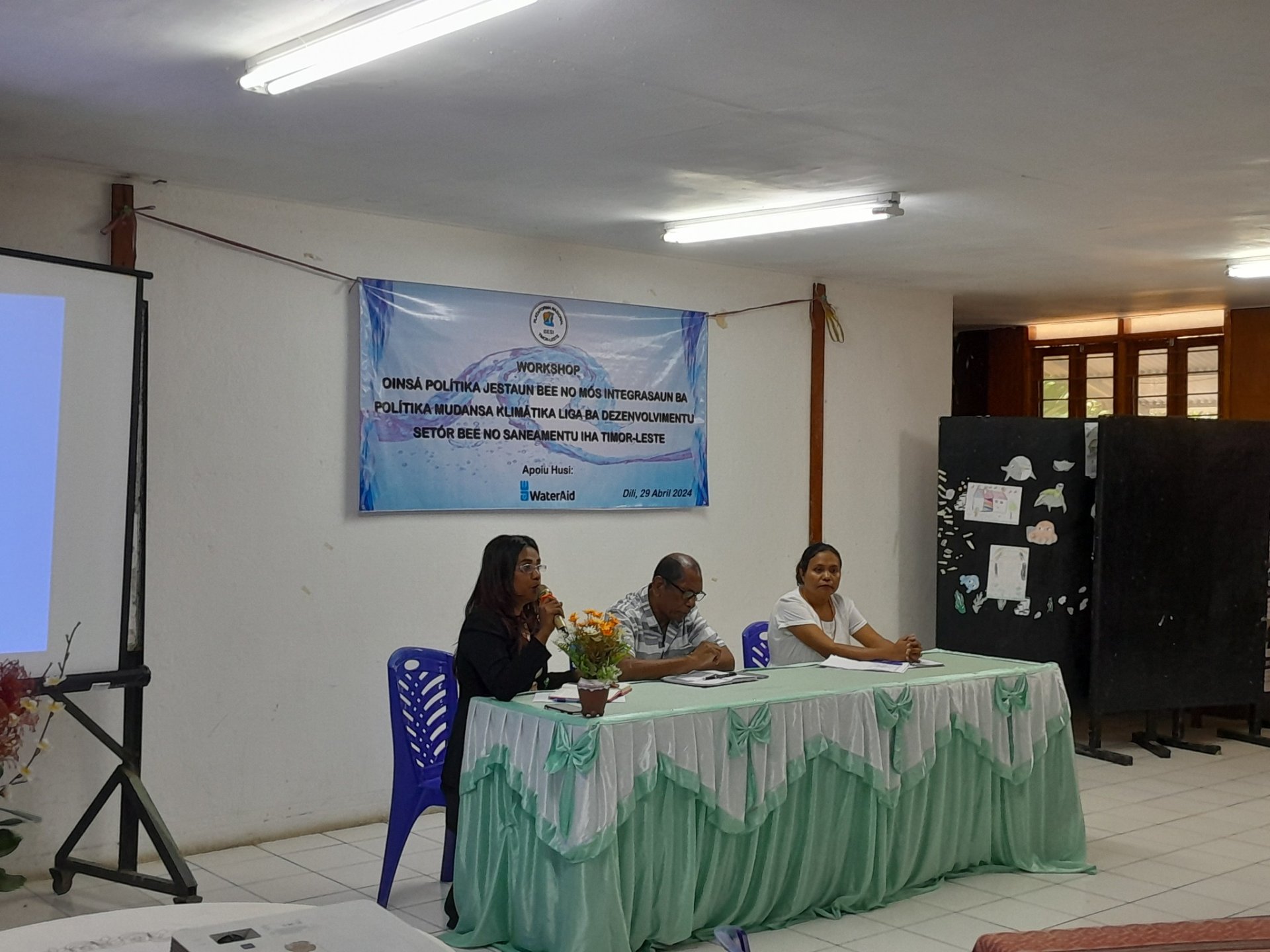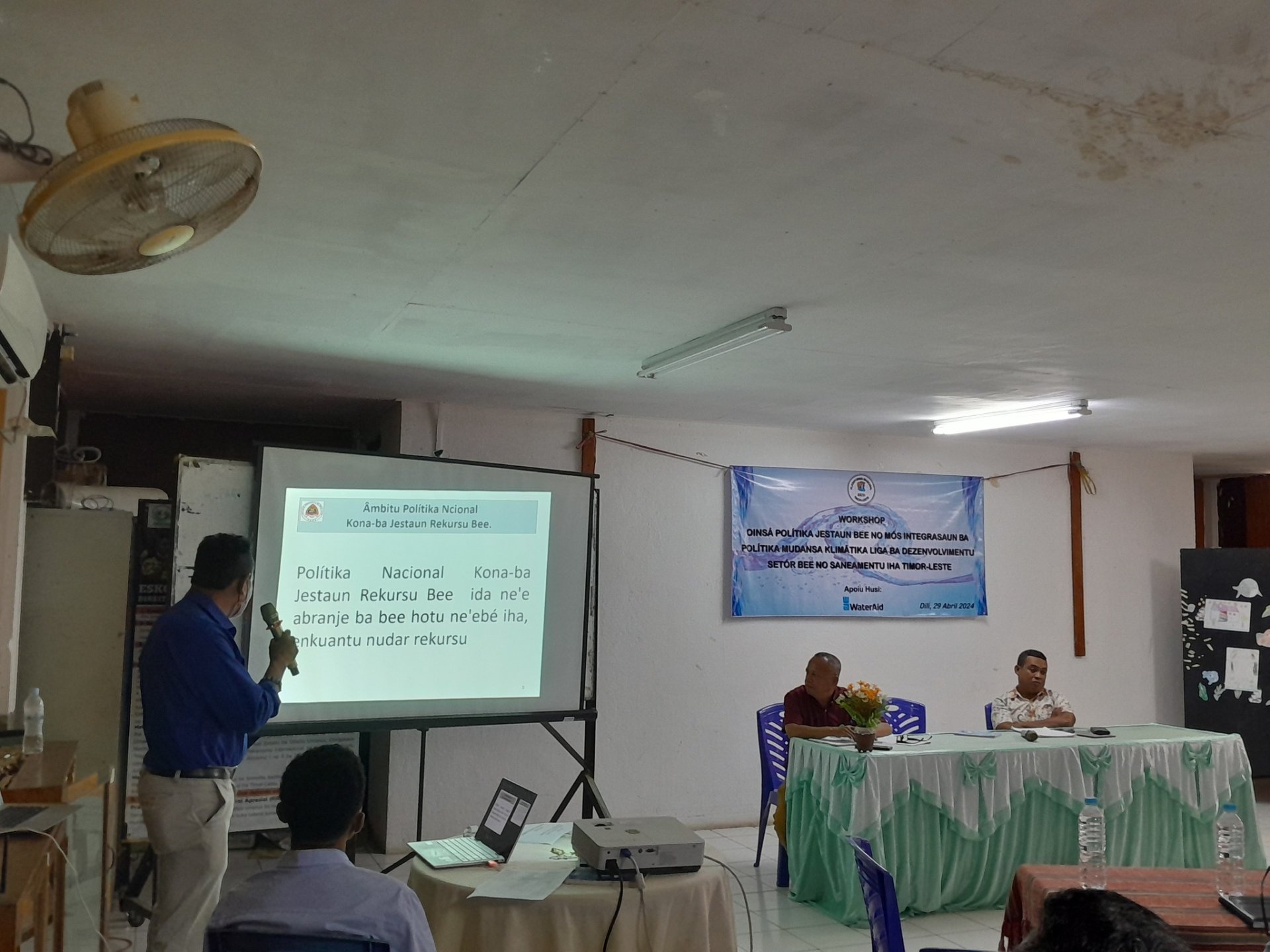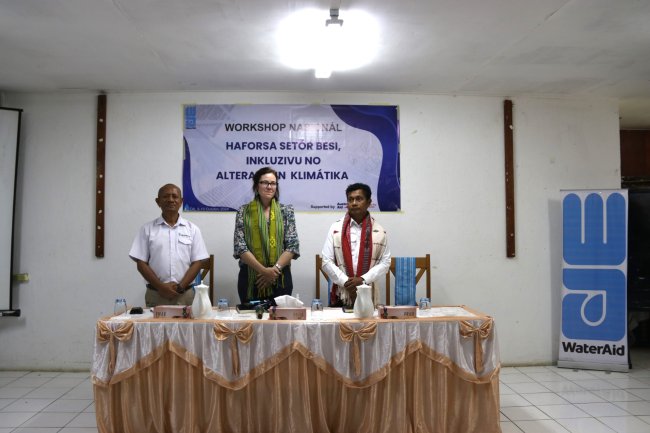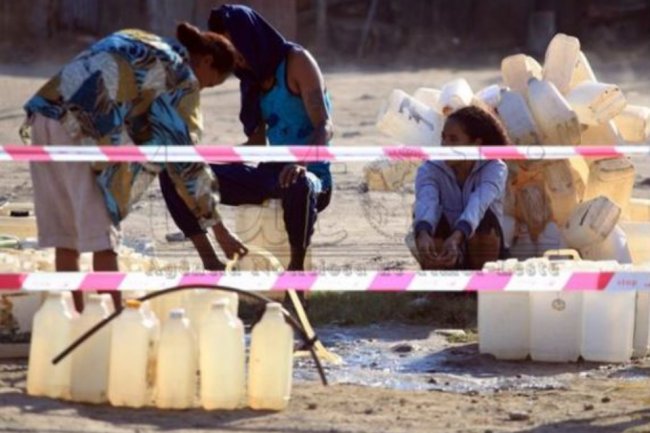Water Resources Management Policy and its integration into climate change policy in the development of water, sanitation, and hygiene sectors in Timor-Leste
The National Platform of Water, Sanitation, and Hygiene (PNBESITL) conducted the Water Resources Management Policy and its integration into the Climate Change policy related to water and sanitation sectors in Timor-Leste, at HAK Association Hall, Faról Dili. This workshop aims to discuss and share information about water management policy and its integration with climate change policy in the development of water and sanitation sectors in Timor-Leste to improve water, sanitation, and hygiene development in Timor-Leste.
Mana Esmenia, the President of PNBESITL gave her opening remark that the National Platform of Water, Sanitation, and Hygiene was established to pursue the ita role of advocacy and secure NGOs' participation in monitoring the development process of clean water, sanitation, and hygiene in Timor-Leste so that the 2030 goal where all the people of Timor-Leste have access to adequate water, sanitation, and hygiene that are inclusive and sustainable. She added that, besides the approval of National Development Strategic Plan 2030, there are a variety of policies and decree-laws to strengthen the achievement towards the development of water, sanitation, and hygiene sectors, particularly the decree-laws of water supply to public consumption, water quality control, including the resolution of the national policies of climate change and hydric resources management. These legal frameworks contribute to strengthening the improvement and development of water, sanitation, and hygiene sectors.
At the same place, the representative of WaterAid Timor-Leste’s Country Director, Mana Livia da Cruz stated that water resources management is an important aspect and needs everyone’s attention on this sector. She underlined that WaterAid is an international NGO that is highly committed to supporting water resources management, particularly its policies, modules, and strategies that can strengthen the implementation of water resources management in Timor-Leste, including how these policies and modules can integrate into the relevant entities’ plan to implement it until reaching the community. WaterAid also has its priorities placed on its strategic plan regarding climate change that reflects the water resources management to ensure the water quality to the community’s consumption and health.
She added that WaterAid also commits to DNRAS to provide capacity-building efforts related to water, sanitation, and hygiene specifically on the water resources management to DNRAS staffs. This capacity building will include data management, planning support, monitoring systems, and implementation at community levels.
Furthermore, the National Director of Water and Sanitation Regulation (DNRAS) in his opening intervention stated that water, sanitation, and hygiene are crucial issues. Since the first Constitutional Government, the improvement of water and sanitation systems in the community has not been solved due to the laws that are not socialized and not well implemented and managed. Therefore, DNRAS is aiming to working closely with the partners to solve these issues at the Government level.
The National Directorate of Water and Sanitation Regulation (DNGRAS) also did a presentation about the National Policy of Water Resources Management. During the presentation, the team presented that Timor-Leste’s Government through the Government Resolution No. 42/2020, 23rd of October, has approved National Policy of Water Resources Management within the territory of Timor-Leste. This National Policy became a leading document and information to the public authority, and al entities of water resources and those participating in the development and implementation of legislations, regulations, policies, strategies, plans, and actions to water resources management within the national territory of Timor-Leste.
Concerning this workshop, Water plays a crucial role in climate resilience and climate change mitigation. We must improve carbon storage with aquatic ecosystems, protect natural zones, catch rainwater, adopt climate-related intelligence culture, re-use of residual waters, use of groundwater. Groundwater is a major threat to the capital of Dili, where the water perforation has reached more than 2000 by the BTL. EP, communities, foreigners, and some are for business matters.
Thus, DNRAS prepared a draft of the Water Resources Law after consultation with the Minister and Secretary of State to convey it to the Council of Ministries to gain approval and minimize groundwater perforation in Dili.
There was also a presentation form the National Director of DNRAS about the national policy National Policy of Water Resources Management and its integration to Climate Change Policy related to water and sanitation sectors and followed by an interactive discussion session.
This workshop was participated by the Director of DNRAS and the team, BTL.EP, SE-PNDS, CVTL, Chief of Comoro Village, La’o Hamutuk, WaterAid Timor-Leste, Plan International, Mary Mackillop Today, Similie, CODIVA, F-HTL, GFFTL, Feto Enjeñeira, ETADEP, RHTO, HAK Association and PN-BESI-TL.
This activity was conducted in HAK Association Hall and supported by Water for Women and WaterAid Timor-Leste




